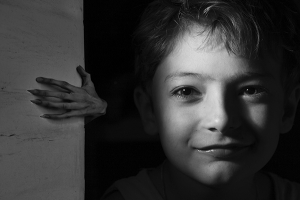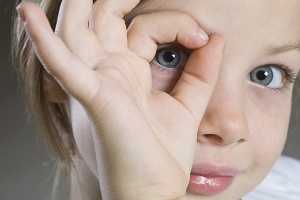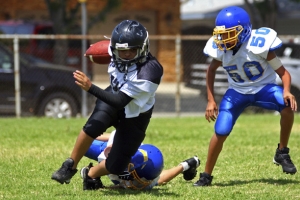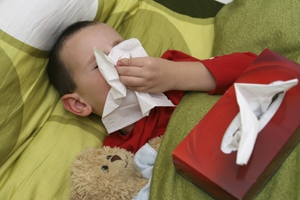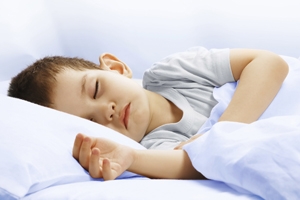
Help for older kids who wet the bed
Bedwetting among older children is more common than parents realize.
- Over 7 million children, ages 5-17, in the U.S. are affected.
- Boys wet the bed 2/3 more than girls.
- If one parent has a family history of bedwetting after 7 years of age, their kids have a 50 percent chance of bedwetting (if both parents, 75 percent).
- Twenty-five percent of children with ADHD wet at night.
- More than 40 percent of children who bed-wet also have some form of daytime wetting and/or constipation that may be the main contributing factor for bedwetting.
Information provided by Rady Children’s Specialties of San Diego (RCSSD), Urology Division
Your 9-year old’s best friend invited her to sleep over again and you have to invent another excuse for why she can’t go. The guarded truth is that your child still wets the bed. The pediatrician continues to assure you she’ll outgrow it and she probably will. Ninety-nine percent of children stop bedwetting by age 15, but your child’s self-esteem and social wellness are being affected now. If you’re concerned and looking for help, here are resources to discover dry nights and help rebuild self-esteem.
What is “normal?”
According to Ann Marie Berger Finley, MSN, FNP-BC, director of Rady Children’s Specialists of San Diego (RCSSD) 2-B-Dry Clinic, bedwetting is generally considered normal from ages 4 to 7 years old.
“Bedwetting can be attributed to multiple factors and each child is slightly different,” says Finley, adding that possible causes can include anxiety, deep sleep or sleep disorders, abnormal daytime bathroom habits, family history of bedwetting, excess urine production at night, small bladder size, diet and constipation. “There is no ‘miracle cure,’ or one treatment or intervention that works for all children.”
Finley stresses that no child wets the bed on purpose, so she should never be punished or ridiculed. And if your child is upset about bedwetting, no matter what age, consider getting help.
“We recommend evaluation if your child has bedwetting (nocturnal enuresis), daytime wetting (enuresis), leaking of urine (giggle incontinence, stress incontinence or post-void dribbling), infrequent bathroom use (twice a day at school or less), urinary urgency or frequency, painful urination (dysuria), recurring urinary tract infections (UTIs), incomplete bladder emptying and associated constipation or stool accidents (encopresis),” Finley says.
If the child has daytime wetting and/or constipation, as 40 percent of bedwetting kids do, it is important to resolve these issues first; otherwise, bedwetting interventions will often be ineffective.
How do I have my child evaluated at Rady’s 2-B-Dry Clinic?
Most insurance companies require a referral from the child’s primary care provider (PCP), although a parent can self-refer if they self-pay or have a PPO. A PCP can also order several screening and imaging tests, which can be performed at Rady’s.
These tests include uroflowmetry (measuring the volume and flow of urine), a post-void bladder scan (assessing post-void residual urine in the bladder), a KUB X-ray (looking for spinal abnormalities, bowel gas patterns and stool burden in the colon or rectum), and a renal and bladder ultrasound (exploring the kidneys for abnormalities).
Specialists review the results during the initial appointment. They gather information on perinatal, medical, surgical, family and social, toilet training, cognitive and behavioral, medication, voiding and defecation histories. They perform a comprehensive physical exam, ultimately establishing a diagnosis and individualized plan of treatment.
What might treatment involve?
The 2-B-Dry program provides behavioral therapy, intensive education and counseling, assessment of the urinary tract, bladder scans and other services as needed.
Initial recommendations might include timed voiding, proper positioning when using the toilet, techniques to empty bladder completely, increased water intake and dietary changes. In order for the bladder to hold urine throughout the night, daytime habits must be healthy.
It is important to praise a child’s efforts when she follows the program and (discretely) collaborates with teachers, the school nurse and other caretakers for assistance. A child will likely require additional bathroom access and should not be asked to wait. She also may need special permission to keep a water bottle at her desk.
Once daytime issues are resolved, Finley explains that there are three main interventions for nighttime. A bedwetting alarm is 60–80 percent effective and the safest choice if used properly with a motivated child 6 years or older. The alarm goes off each time the child starts to wet; over time, she will wake before the alarm and make it to the bathroom. Alternatively, the lifting method requires the parents wake the child up 1–2 times during the night to urinate, thereby keeping her dry. Finally, prescription medications are an option. 2-B-Dry practitioners can help assess which method(s) is right for each individual.
RCSSD’s chief of pediatric urology, George Chiang, says, “Our program has shown that an overwhelming majority of kids get better with two to three visits. We provide a tailored approach to each child and work closely with parents, pediatricians and school nurses.” Call 858-966-5999 to schedule an appointment.
Lisa Pawlak is an Encinitas resident and contributing writer.
Helpful Resources
Rady Children’s Urology Division
Potty MD
7 Steps to Achieve Nighttime Dryness by Rene Mercer, PNP
Published March 2016


